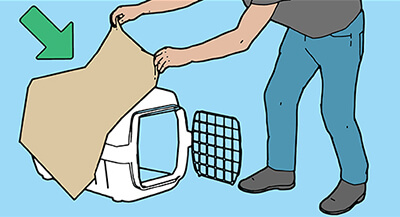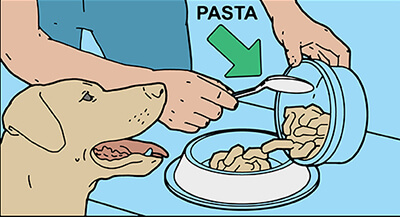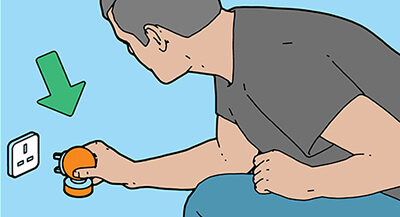Noise phobias are common in dogs, but there’s also lots you can do to help. Petplan behaviourist Inga MacKellar explores the triggers and looks at ways to help calm your pet in the run-up to Bonfire Night.
The firework season is nearly upon us and, while this used to mean just one night of flashes and bangs, it can now stretch to several weeks. Noise phobias and sound sensitivities are common at this time of year, but it’s not just fireworks that can result in an anxious dog.
What is a noise phobia?
There is a big difference between being startled by a noise and momentarily becoming fearful and an actual noise phobia. A phobia is an overreaction to something that another animal might be startled by but quickly recovers from.
A dog with a noise phobia will start to pick up associated signals, such as rain indicating thunder or even a change in barometric pressure and become fearful long before they hear the sound they are frightened of. People don’t realise how debilitating a noise phobia can be for a dog and how much it can affect their everyday life.
What causes a noise phobia in dogs?
This is a problem that can stem from early life. With puppies, the importance of socialisation is well understood, but another important process is habituation. This is where a puppy gets used to the things in its environment, including everyday sounds.
If not exposed to these early on, it’s far more likely that they will grow up to be fearful of them. A puppy who has been reared in a fairly noisy, bustling home, will be less likely to develop a noise phobia.
Dogs can also become sensitive to sound later in life, for example if they begin to lose their sight or develop dementia. In this case, a trip to the vet to get your pet checked out would be advisable.
Signs that a dog is noise-phobic
A dog with a noise phobia can become very distressed and may salivate, pant, start pacing, scrabble at their owner, tremble or try to hide when exposed to loud noises.
I’ve had a few cases where owners have come home to find their sofa has been destroyed because their dog tried digging down into it to hide from a noise it was frightened of.
What noises are dogs scared of?
A dog can become fearful of any sound that it forms a negative association with. Common ones are fireworks, of course, but also loud bangs, thunder and cars backfiring.
I’ve rescued a noise-sensitive dog who was frightened of every sound in our house at first. If I got a pot down to do some cooking and it clinked, she’d be off. She gradually became accustomed to it but, with some dogs, the problem can become worse if not handled properly.
What can you do to help?
If severe, noise phobias can affect a dog’s everyday life. Before the problem gets too bad, you should speak to your vet about getting a referral to a properly qualified pet behaviourist who can assess the situation and advise you on the best approach. A counter-conditioning and desensitisation programme can be used as a structured way of introducing noises at a very low level. While a dog is not reacting, he is given treats or played with so that he begins to make a positive association with the sounds. However, this is a very long process and, if not done correctly, can actually make a situation worse.
In order for counter-conditioning and desensitisation to work, a dog must be relaxed, but in severe noise phobia cases, even listening to a recorded sound on its lowest volume setting can get a reaction. A dog cannot learn a new behaviour if he’s not relaxed, so medication may be needed initially to calm a dog enough so that he’s receptive. Your vet and behaviourist can advise what is best.
Practical things you can do at home to ease your dog’s anxiety:

1) Make your dog a den – If you have a cupboard under the stairs, this is normally the ideal spot for a dog to feel safe. It’s away from windows and is dark and quiet. If you don’t have somewhere like this, find the quietest area in your house and use an open dog crate draped in blankets to muffle the sound and create a dark hideaway.

2) Eating carbs to be calm – For dogs with a mild case of noise sensitivity, feeding them a meal high in carbohydrates, such as pasta, actually changes the brain chemistry and may help them relax. If you know that there are fireworks or thunder on the way, feeding a high-carb meal early on could help.

3) The natural approach – There are herbal, pheromone and nutraceutical products that you can buy over the counter that can help to calm an anxious dog. You could try plugging in a pheromone diffuser near your dog’s den or spray their blankets with valerian.
Share this article by clicking on the social media icons below and let your friends know the signs to look out for!
